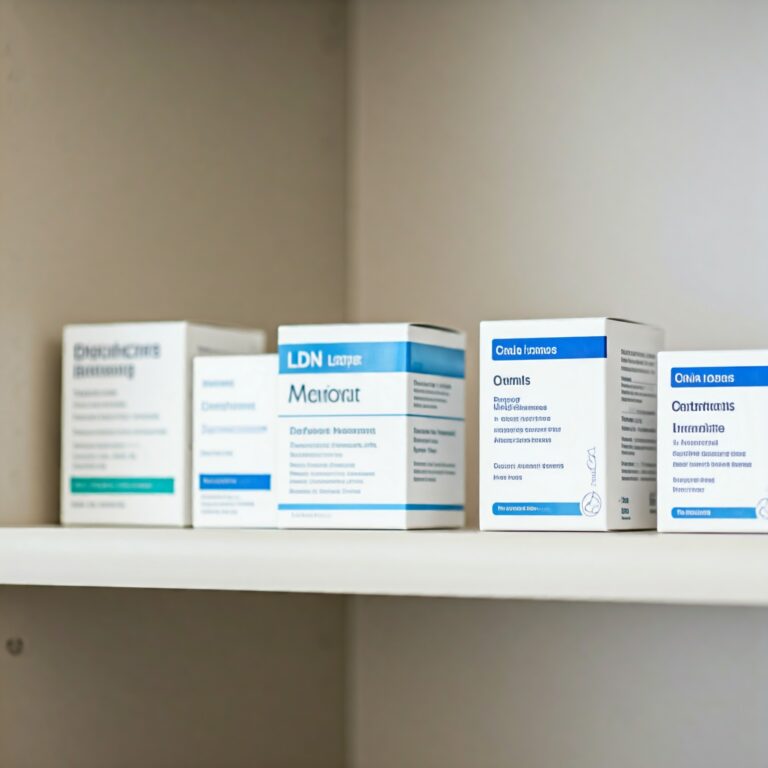When your gut writes its own plot twists, it helps to have a plan. This guide shows you how to talk to your doctor about Crohn’s disease so your appointment feels less like guesswork and more like teamwork. With a few simple habits, you can communicate clearly, ask smart questions, and leave with next steps that fit your life.
How to talk to your doctor about Crohn’s disease
Think of the first minute as your headline. Lead with your top three concerns, what has changed since last time, and what you want from this visit. That sets the agenda and keeps the conversation focused.
Quick appointment checklist
- Your current symptoms and when they started
- Any triggers you have noticed, such as food or stress
- A list of medicines and doses, including supplements
- Recent tests or hospital visits
- One goal for today, for example pain control or fewer toilet trips
Tip, write it down. Symptom tracking helps you spot patterns and makes it easier to explain what is going on.
Be honest and specific
If a symptom affects your daily life, it matters. Use plain language. Describe frequency, severity, and what helps or worsens it. If you feel awkward discussing bowel habits, say so, then share the facts. Your doctor has heard it all before, and specific details help with diagnosis, medication management, and timing of tests such as a colonoscopy.
Discussing treatment options with your doctor
There is rarely one perfect plan. Ask about Crohn’s disease treatment options and the likely benefits, side effects, and monitoring. Useful prompts include, what does success look like, how long before I notice a change, what are the trade offs, how will we review this. If you are in a flare up, discuss short term relief alongside long term control of inflammation and remission.

Crohn’s disease lifestyle changes worth discussing
Small, practical tweaks can ease symptoms and support remission. Ask for personalised advice and keep it realistic.
- Nutrition plan, simple swaps and a pattern you can keep to, plus when to ask for a dietitian
- Stress management, brief techniques you can use on busy days
- Movement, gentle exercise when energy is low, and how to pace
- Sleep, simple habits that help your gut and mood
Agree on treatment adherence steps so you know what to take, when to take it, and what to do if you miss a dose. If cost, side effects, or timing get in the way, tell your healthcare team. There is often a workaround.
Questions to ask your doctor
- What symptoms should I monitor and which are Crohn’s disease symptoms to report urgently
- What are the risks and benefits of this medicine compared with others
- Why this test, such as a colonoscopy, and what will it change
- What does remission look like for me
- How will we handle future flare ups and how to manage Crohn’s flare-ups at home
- Who in the healthcare team do I contact between appointments
Support beyond the clinic
Good care is not only prescriptions and scans. Consider practical and emotional support too. Ask about Crohn’s disease support groups, workplace adjustments, and what to share with family. This is effective patient-doctor communication in action, you bring your lived experience, your team brings expertise, and together you shape a plan you can stick with.
When to call sooner
Contact your team if you have new bleeding, fever, severe pain, quick weight loss, dehydration, or you cannot keep medicines down. If something feels off, it is worth a call. Early conversations often prevent bigger problems.
Talking to doctor about IBD and mental health
IBD strains more than the gut. If anxiety, low mood, or fatigue make life harder, mention it. Ask about emotional support options, brief therapies, or referrals. Feeling heard is not a luxury, it is part of care.
Taking control of your health
Come prepared, speak plainly, and agree clear next steps. That is patient empowerment in practice. If you need time to think, ask for written information or a follow up message summarising your plan.
Write your top concerns, symptoms, and medicines. Bring recent test results and set one clear goal for the visit.
New bleeding, fever, severe pain, dehydration, or rapid weight loss. Call sooner if something feels off or worsens quickly.
Ask about benefits, risks, how success is measured, and review timings. Discuss options if side effects or cost are issues.
Start with your top three concerns and what has changed. Be specific about impact on daily life and what you want today.
Yes, a trusted person can take notes and ask practical questions. Tell the clinic in advance if possible.
Say what worries you and why. Ask about alternatives or request a second opinion if needed.
The psychology of a good appointment
Reframe the visit as a team meeting. You bring data from your daily life, your doctor brings clinical expertise, and the plan sits in the middle where those meet. Practise a one line summary before you go, for example, “I have had six weeks of cramping and urgency, worse after lunch, paracetamol helps a little, I want to discuss next steps.” It is simple, and it works because it reduces waffle and highlights what matters.
Conclusion
Clear, calm conversations make a difference. With a short appointment checklist, the right questions to ask your doctor about Crohn’s disease, and honest updates between visits, you give your team the information they need to support you well.
Medical disclaimer. This blog post is intended for informational purposes only and should not be construed as medical advice. Always consult your doctor to discuss your individual situation and the best course of treatment. Do not start or stop medicines without speaking to a doctor. Do not change your diet without speaking to your doctor or a healthcare professional.





